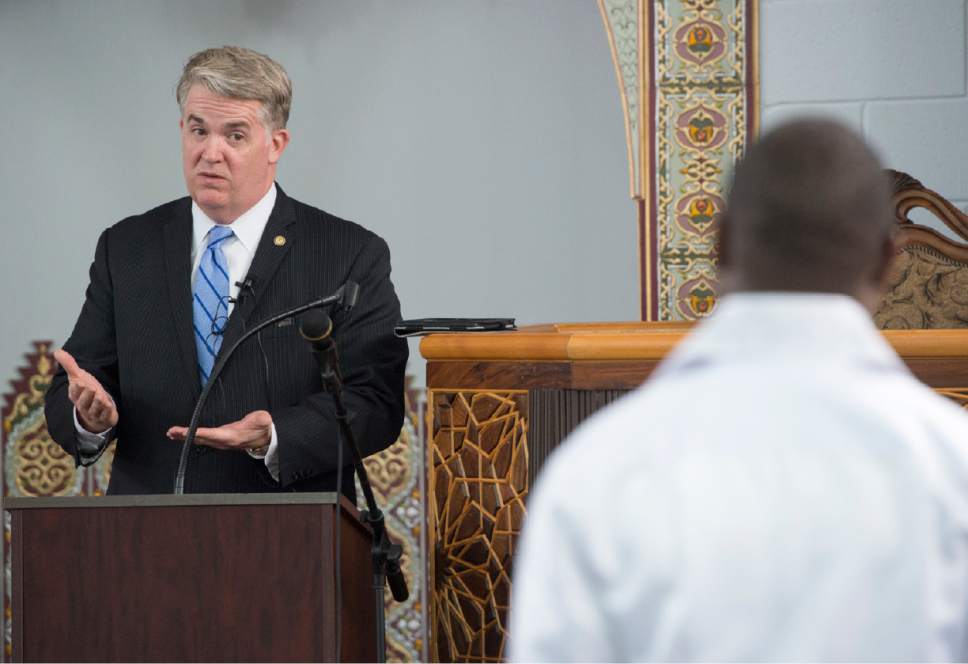This is an archived article that was published on sltrib.com in 2017, and information in the article may be outdated. It is provided only for personal research purposes and may not be reprinted.
John Huber is in a delicate position.
Clearly a law and order guy, the U.S. Attorney for Utah runs an office that has prosecuted hundreds of criminals since he was appointed by President Obama in 2015. A career prosecutor, he served in the U.S. Attorney's office since 2002, following stints as a prosecutor for Weber County and West Valley City.
In that context, it's not surprising that he joined a White House press conference this week to praise two House bills — one called "Kate's law" and another called "No Sanctuary for Criminals Act" — intended to put more violent criminals behind bars.
Kate's Law is named after a San Francisco woman who was killed by a man with a long record and multiple deportations. Huber cited the case of Millard County Deputy Josie Greathouse Fox, who was killed in 2012 by Roberto Miramontes Roman, who was deported three times before killing Fox.
"Stiffer penalties for re-entry offenders make sense," Huber said. "The status quo is just not deterring the criminals from returning."
The "No Sanctuary for Criminals Act" limits federal funding to cities who declare themselves "sanctuaries" for illegal immigrants. On that bill, Huber said, "removing unnatural impediments between local and federal law enforcement will enable the coordination we need in this country to keep our neighborhoods safe."
Huber doesn't have any sanctuary cities in his state, but Utah does have police agencies, including some of the largest, that have resisted enforcing federal immigration laws in the course of doing their jobs. That is because it interferes with the course of doing their jobs. Residents without documents won't call the police, even when they need them, if they think it will get them deported.
And Huber seems to understand that.
In a 2014 Tribune story about prosecuting a crime involving immigrant victims, Huber, then a prosecutor in the office he now runs, talked about catching the offenders, not the victims. "What motivates a prosecutor is when you have a vulnerable community with predators amongst them taking advantage of them."
So 2014 Huber hit it straight on the nail. We all want violent criminals caught, but extending immigration enforcement to every person without documentation ends up making communities less safe, not more.
Versions of the two House bills have been kicking around for a while, and they are just two bills of many that show Congress' lack of resolve to truly tackle immigration at scale. Enforcement and local police roles could be better defined in a comprehensive approach that includes border security, visa reform and a path to legality for law-abiding immigrants. Pulling at one or two strings won't unwind the knot. It will take a patient, productive legislative body and a president who wants it to happen.
In the meantime, the White House sticks to its xenophobia, and Utah's U.S. Attorney is one of the few Obama appointees to squeeze through the sieve to work for the Trump administration.
John Huber is in a delicate position.



